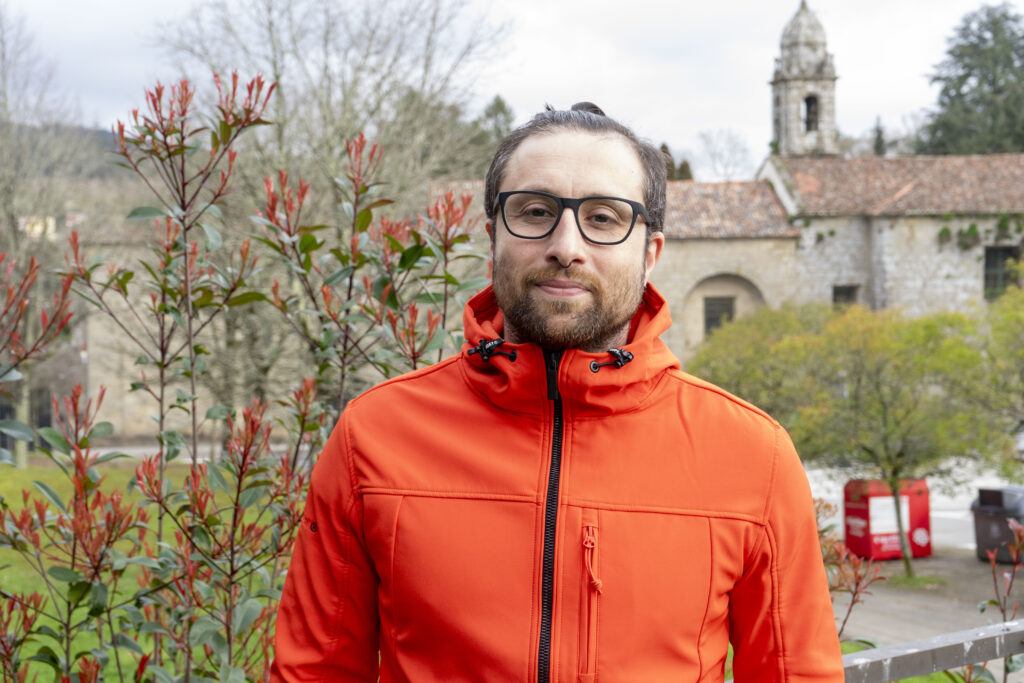Yassid Ayyad, Ramón y Cajal researcher at the Instituto Galego de Física de Altas Enerxías (IGFAE), a joint centre of the University of Santiago de Compostela and the Xunta de Galicia, has been awarded by the Facility for Rare Isotope Beams (FRIB) in the United States. This experimental laboratory, located at Michigan State University, is one of the world’s leading facilities in nuclear physics.
The IGFAE researcher has been one of the two selected in the Visiting Scholar for Experimental Science programme, which aims to encourage and help young scientists to develop a research programme in this laboratory. To this end, the award finances stays on its premises for people of recognised trajectory, whose lines of work have a potential impact on the FRIB’s scientific programme.
In view of this recognition, Yassid stresses that ‘the FRIB offers an ideal and unique environment to develop and realise ideas that may initially seem complex’. Yassid Ayyad holds a PhD in nuclear physics from the University of Santiago de Compostela, and before joining the IGFAE, he was a detector systems physicist at the FRIB.
Study of the structure of exotic nuclei
Over the coming months, the scientist will advance his research on the structure of exotic nuclei, using the SOLARIS spectrometer (SOLenoid Apparatus for ReactIon Studies). Ayyad plans to develop an active target for rare gases such as tritium or helium-3, and to work on an active target time projection optical camera (AT-TPC) in collaboration with FRIB.
‘The technology we are developing to investigate the nature of nuclear matter has many societal applications in various fields,’ he says. ‘For example, our current understanding of how protons and neutrons interact and reorganise themselves can have a strong impact on quantum communications, a field that is undergoing its second revolution.
‘FRIB will play a key role in providing the most exotic nuclei we can produce in a laboratory,’ says Ayyad. ‘One of the main objectives is to strengthen SOLARIS’ capabilities to carry out experiments that can only be performed at FRIB thanks to the collaboration with FRIB’s detector laboratory, which provides essential knowledge and tools.
Understanding the atomic nucleus to contribute to society
According to the IGFAE researcher, one of the main goals of modern nuclear physics is to understand the intricate interactions between neutrons and protons under extreme conditions and at the limit of stability. In these situations, an excess of protons or neutrons leads to the occurrence of remarkable phenomena that are unusual in stable nuclear matter.
The FRIB plays a key role in the study of these extreme conditions, as its facilities make it possible to generate the most exotic nuclei that can be produced in a laboratory. Among them, some will be produced at very low intensity, a domain in which SOLARIS, on which Yassid Ayyad will be working, stands out: ‘The ability to carry out efficient experiments with the most exotic species serves as a direct gateway to exciting and unobserved phenomena within highly unbalanced nuclei,’ he adds.
The study of matter under these conditions offers a wide range of societal applications, in fields as diverse as medicine, industry and telecommunications. In the case of the research carried out by Yassid Ayyad and his collaborators at the IGFAE, the detectors used in their experiments have led to the birth of Neutron Insights, a spin-off of the Institute that will provide neutron radiography services for industrial applications.
